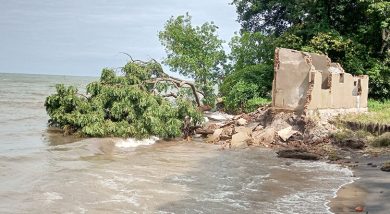Teachers hail LDF projects

Teachers in Mchinji have touted education infrastructure projects funded by the Local Development Fund (LDF) as on course to help improve education outcomes nationwide.
The teachers, speaking in separate interviews when Malawi News Agency (Mana) visited the schools last week, said LDF-funded primary school staff houses and school blocks have motivated them to deliver better education services.
A Mana snap survey in the district last week revealed acute shortage of teacher’s houses and school blocks.
These shortages, according to the teachers, make it hard for pupils to learn, thereby affecting the quality of education.
According to head teacher for Nkumba Primary School Annie Kambale, her institution, opened in 1994, never had a staff house until the LDF intervention two years ago.
“I am glad that the LDF initiative has provided one teacher’s house at this school. Imagine, since 1994, when this school was opened, there wasn’t any teachers’ house until LDF came in,” she said.
Kambale said teachers walk for more than seven kilometers, arriving at the school too tired to effectively impart knowledge.
This is why, she said, community members convinced Mchinji District Council to construct a staff house so that at least the head teacher should live on compass.
Instead of just the house, the council added a school block with addition LDF funding—a bonus Kambale said has helped alleviate classroom shortages.
The school has 10 teachers—meaning that only one, the head teacher, is being housed within the school’s premises.
The rest live at Kamwendo, a trading centre approximately seven kilometres from the school.
Ted Kondwerani, another head teacher from Kholoni Primary School near the Malawi-Zambia border, said LDF education infrastructure projects have brought back teachers’ glory.
“The housing project is a welcome idea; it has brought back the pride of teachers. I just pray that government gives us another chance for more houses. We know this is a demand-driven programme; hence, we have the necessary materials [as community contribution] and are waiting to be granted opportunity for another house,” he said.
Charles Mandala, LDF Technical Support Team (TST) director of advocacy and knowledge management, said on Wednesday he was satisfied with the structures built.
“I am impressed with the work and the structures are really good. It is also encouraging as the intended purpose for LDF is being met, even though there are a few gray areas that the council and LDF TST need to improve on,” said Mandala after visiting some of the projects and meeting Mchinji council officials.
The LDF—the government’s standardised local development financing mechanism—aims to empower local communities to take part in decision-making processes through improved local governance and development management focused on poverty reduction and improvement of service delivery.
When LDF TST—which is the Ministry of Finance’s local development financing arm—mobilises resources, it transfers them to councils through the National Local Government Finance Committee (NLGFC) for onward transmission to beneficiary communities.
The communities manage the projects while the council only supervises to ensure adherence to quality specifications, time frames and cost estimates.





